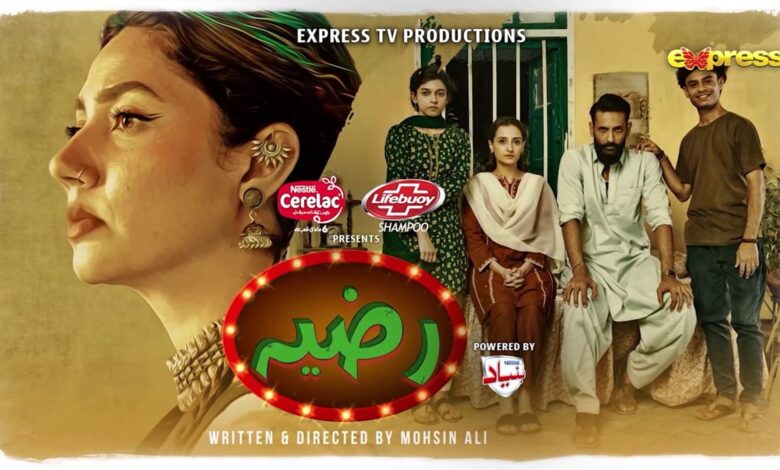Gender Stigma in Pakistan: ‘Razia’ Sparks Debate

“Razia” is a poignant narrative that delves deep into the systemic gender biases entrenched in our society. The story centers around Razia, a young girl whose aspirations are constantly thwarted by the “restrictions” imposed on her simply because she is a girl. From the moment of her birth, Razia is deemed a burden by her parents, setting the tone for a life marred by deprivation and inequality.
“Razia” is a cinematic masterpiece that sheds light on the grim realities faced by girls in many parts of the world. The film’s strength lies in its unflinching portrayal of gender discrimination, starting from the very home where girls should feel the safest and most supported.
The narrative powerfully encapsulates the stark truth “The first ones to deprive a daughter of her rights are often her parents, who consider her a burden from the moment she is born and do not celebrate her arrival.”
This compelling drama resonates deeply with this sentiment, shedding light on how countless young girls have had their dreams crushed under the weight of societal rituals and narrow mindsets. Yet, it doesn’t end there; the enduring struggle that a girl faces due to these prejudices is a lifelong battle.
Every girl, at some point in her life, has likely said, “Kaash main larka hoti“.This line from the film highlights the pervasive and often overlooked issues of familial bias against daughters and reflects the deep-rooted societal preference for sons over daughters.
The director’s treatment of the subject is both sensitive and hard-hitting. By focusing on Razia’s personal struggles, the film effectively mirrors the broader societal issue of gender inequality. The script is a heartfelt plea for change, urging viewers to recognize and rectify the deep-seated prejudices that rob girls of their basic rights and opportunities.
The film also highlights the two faces of men in our society. On one hand, there is Mannu, Razia’s kind-hearted childhood friend who supports her unconditionally. From helping her buy a bicycle to standing by her side as she completes her intermediate studies, Mannu is a beacon of hope and compassion in Razia’s life.
On the other hand, the film exposes the darker side of patriarchy through Razia’s father and husband. Razia’s father sells her to protect his son, who was caught in a compromising situation. This act of betrayal highlights the extent to which some men will go to uphold patriarchal values. Razia’s husband, a psychopathic abuser, further exemplifies this darkness by inflicting physical and emotional harm on her as revenge for what his brother did to her sister.
The performances are stellar, with Shaheera Jalil delivering a compelling portrayal of Razia. Her nuanced performance captures the frustration, resilience, and quiet strength of a girl fighting against societal and familial constraints. The film’s cinematography is equally commendable.
One of the most striking aspects of “Razia” is its theme of hope amidst adversity. Despite the numerous challenges Razia faces, the film underscores her undying spirit and determination to carve out a space for herself in a society that constantly tries to limit her. This theme is a powerful reminder of the resilience and potential within every girl, and it serves as an inspiration for viewers to advocate for equality and justice.
Conclusion
“Razia” is more than just a film; it is a call to action. It poignantly highlights the bitter reality that girls are not given rights equal to boys, even by their own families. The writer, director, and actors deserve immense praise for crafting this masterpiece that artfully mirrors our society’s flaws and challenges. The script, coupled with the brilliant performances and direction, makes “Razia” a must-watch. It challenges societal norms and prompts critical reflection on how we treat our daughters. The theme behind this masterpiece is indeed marvelous, making it a significant contribution to social commentary through cinema.



That’s shows how we treat our daughters in society